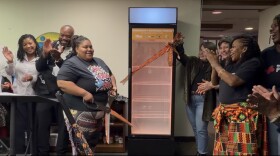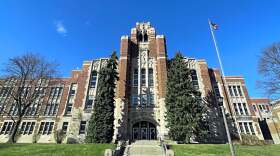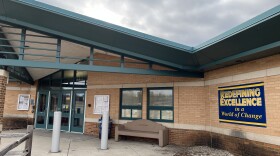Cities all over the United States will be celebrating Bastille Day, the national French holiday, this weekend. Milwaukee, the city of festivals, is having its own celebration.
Commemorated every year on July 14, Bastille Day is akin to our July 4 because it celebrates the beginning of a journey to independence. On July 14, 1789, peasants stormed the Bastille prison and ignited the revolution against the existing monarchical rule in France. Though originally a bloody and violent affair, Bastille Day is now celebrated with pageantry.
"It's a holiday, it's warm out, it's a time to get together with your family and have fun," says Anne Leplae, executive director of Alliance Française in Milwaukee.

Why do we celebrate another country's independence day in the U.S? Well, French influence is entwined in our history. During the 17th century, French fur traders and missionaries settled in Wisconsin. Their influence is seen in many names in the state, such as Fond du Lac, which means "bottom of the lake".
In fact, Wisconsin used to be spelled Ouisconsin "because the first people who drew up the maps were French," says Leplae.
READ: Beyond The Beignets: 'Ouisconsin' French History
The fur trade led to the development of the city of Milwaukee. Milwaukee's first residents were of French origin, and its first mayor, Solomon Juneau, was French-Canadian. Though the French legacy in Milwaukee is strong, the annual celebration of Bastille Day didn't start until the '80s.

"If you remember the 1980s, it was a time when downtown Milwaukee was collapsing. There was flight into the suburbs and the businesses were collapsing," says Leplae.
Nobody wanted to come into downtown. François Niveau, a frenchman and the general manager at the Pfister Hotel at the time, and others decided: " 'Let's create something fun to bring people back downtown.' ... That was the genesis of Bastille Days," says Leplae.
So, 38 years ago, Milwaukee had its first Bastille Days festival. Though it started small, it has grown to become the biggest Bastille Day celebration in North America, according to Leplae.
It features a giant Eiffel Tower created by engineers at the Milwaukee School of Engineering, street vendors, and a run on opening night that simulates the storming of the Bastille, albeit with beer as an optional refreshment.
What would the original revolutionaries think about our Bastille Day celebrations?
"I really think that the idea of having a free street festival is completely in line with [them]. This is an event for the people," Leplae says.






